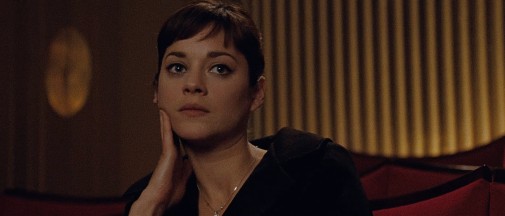
It's become somewhat uncommon for Oscar champions in the acting categories to be a "one and done" type of deal. A good amount of the winners from the past 25 years have either received nominations after their victory or already had them before their golden coronation. All this to say that, after Marion Cotillard won the Best Actress Academy Award for her work in La Vie en Rose, it felt like it was just a matter of time before she'd be in another Oscar lineup. That follow-up nod would come until 2014 for Two Days, One Night but, before that, there were a couple of failed Oscar bids to account for.
Previously in this series, we talked about her 2012 Best Actress snub for Rust & Bone. Now, let's look further back, to the Best Supporting Actress race of 2009...
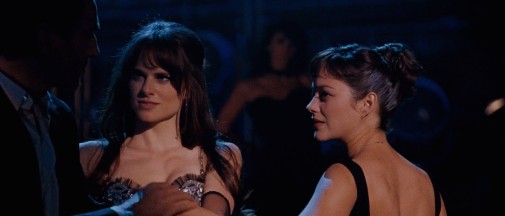
Following her grand victory, Cotillard used her newfound international fame and prestige to find mainstream work outside the French film industry. Not only that, but Cotillard picked projects by big-name directors and some of the most successful distributors when it came to Oscar's success. In 2009, her first movies post-win arrived in theaters, and, as luck would have it, they were both received with general audience indifference and a good amount of critical revilement. However, another thing those movies had in common was that Cotillard's work was described as a saving grace.
Of the two projects, Nine was the one that came closest to securing Marion Cotillard a much deserved second nomination. Not to beat a dead horse too much, but it must be said that this adaptation of Maury Yeston's Fellini inspired musical is a rather dire affair. Rob Marshall tries to replicate the triumph of Chicago and fails miserably, subjecting a sterling cast to a series of indifferently staged numbers and a mutilated version of the original show. SAG may have nominated Nine's actors for its Ensemble award, but only Marion Cotillard rises above Marshall's miscalculations. She plays Luisa Contini, the long-suffering wife of Daniel Day-Lewis' Guido, an Italian film director that's also a pathological adulterer.
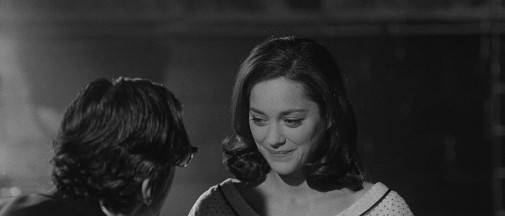
Even with only two musical numbers and a sparse handful of complementing scenes, Luisa's the character with the most defined character arc. Many years before the depicted events, she was her husband's muse and leading actress. After they got married, she stopped acting and his philandering ways and constant deceptions have been corroding their union ever since. Throughout the film, we get a sense that Luisa fell in love with the artist as much as she did with the man, and Guido often looks to her as an important collaborator. They are not quite childless, as their movies are their progeny. No wonder that their marital crisis is so intrinsically connected to the director's creative block.
The script only hints at such details, but Cotillard fleshes it out with unmissable clarity. While most of her costars are floundering about trying to bring authenticity to Marshall's pastiche and failing at the specificities of musical acting, Cotillard cuts through all the nonsense like a hot knife through butter. Every gesture and put-upon smile, every genuine glimmer of happiness that's promptly squashed by another indignity hits the audience and breaks their heart with vicious precision. She also takes to musical performance like a fish to water, acting her way through the songs while never sacrificing their sonic quality nor the dramatic choreography.
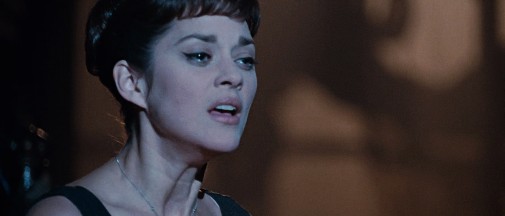
In "My Husband Makes Movies", Cotillard illustrates why Luisa has stayed by her husband's side even as it hurts her to do so. It's a funeral song for a dead relationship that still pretends to be alive. Luisa could come off as a clichéd martyr at this moment, but Cotillard makes sure that her wifely devotion is not pitiable or saintly. It's simply part of who this woman is as a person in love and as an actress who misses the passionate gaze of the audiences, the camera, and her director.
Still, even Luisa has her limits. One transgression too many makes her seethe, her façade of submission falling apart as she uses her rageful words to promptly dismiss Guido's bullshit. She knows how to hurt him and, at that moment, she wants to.
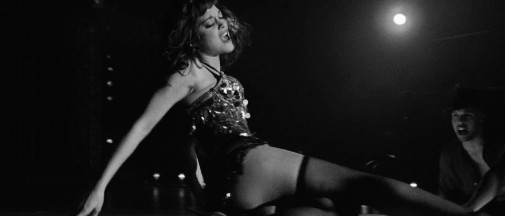
A small reconciliation makes it appear like there's still a chance but one more violation of their love is the final nail in the coffin of Guido and Luisa's relationship. Watching Cotillard perform the instant when Luisa gives up on her marriage is glorious, her meager mirth morphing into cold finality. As Marshall intercuts her brokenhearted monologue with the vengeful strip-tease of "Take It All", Cotillard explodes the film's empty razzle-dazzle with a shot of lacerating truth. It hurts to watch, it feels too real for the movie and that's why it's so extraordinary. I may mourn the loss of the song "Be On Your Own" from the original Nine, but Marion Cotillard's rawness in this scene makes up for that musical tragedy. She's mesmerizing.
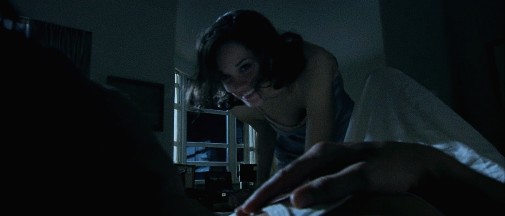
Michael Mann's Public Enemies was the other 2009 picture for which Cotillard received great reviews. Unlike Nine, for which she was Golden Globe-nominated, that critical acclaim didn't materialize in any awards buzz. However, I still want to shine a light on her work in this gangster picture of ungodly digital ugliness. She's Billie Frechette, John Dillinger's romantic interest and the only hint of humanity in the whole enterprise. The stock role itself is mostly thankless, a gangster moll. Her attachment to the protagonist would be puzzling if not for Cotillard's efforts at fleshing-out Billie's interiority.
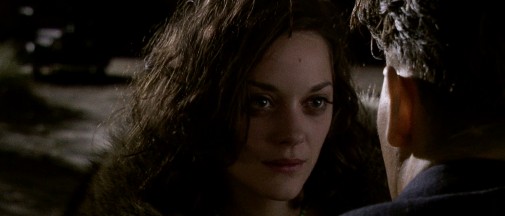
In the hands of this French Oscar winner, the character comes off as a woman who's excited rather than terrified by her lover's violent ways. Cotillard lets us know that Billie is turned on by danger, making her loyalty into a much more complicated psychosexual conundrum than it initially appears. We fully believe she loves Dillinger and, when the cops catch her, that love makes her resistance into an act of prideful victory. She's beaten up while being interrogated, thoroughly humiliated, but her silence is insolent. Even when, in the end, she learns it was all for naught, there's a menacing quality to her sorrow. She may cry in front of her foes, but she won't give them the pleasure of seeing her broken. Even in tears, Billie Frechette is resolute, strong, and unbending.
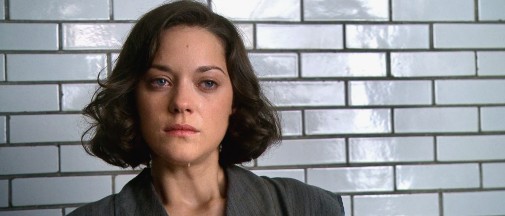
All in all, Cotillard should've had a spot in the 2009 Oscar lineup, whether for Nine or Public Enemies. Unfortunately, many factors conspired to rob her of that honor. First up, we have Harvey Weinstein's idiotic decision to campaign her work in Nine as lead. Later in the season, when they changed up the categorization, it was already too late and confusion had tainted her Oscar bid. There's also the matter of internal competition from Penélope Cruz, who did end up nominated, as well as an unusual abundance of movies with two legitimate Supporting Actress contenders within the same season. In the end, Mo'Nique won the Academy Award for Precious, with Vera Farmiga and Anna Kendrick taking up two other spots for Up in the Air. If Cotillard were to substitute any of the final nominees, it would be Maggie Gyllenhaal for Crazy Heart, whose nomination was a considerable surprise.
Nine is available to stream on Showtime and DirecTV. As for Public Enemies, it's new to Netflix and you can also rent it from Amazon, Youtube, Google Play, and others.